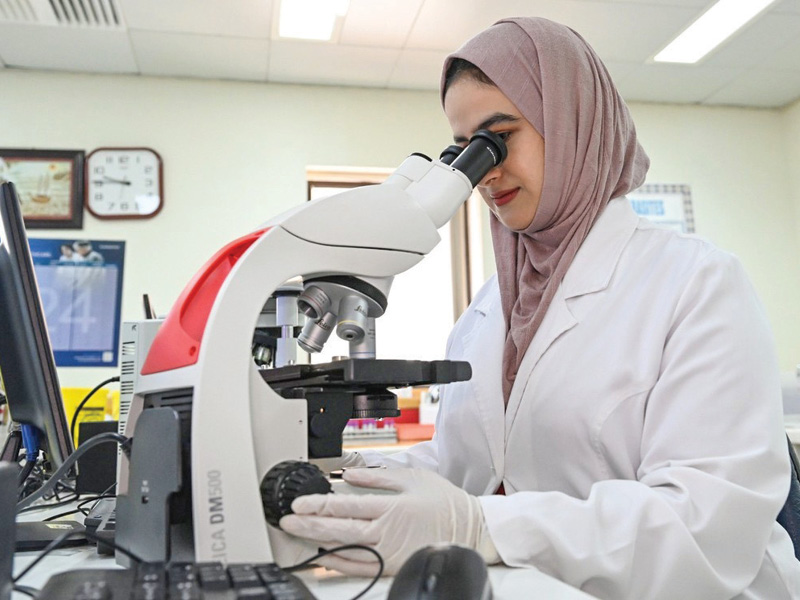Muscat – Oman’s genetic health services have taken important strides with the introduction of advanced laboratory support for organ transplant and expansion of the National Newborn Screening Programme.
The National Centre for Genetic Health has established a tissue matching and immunogenetic laboratory to support the sultanate’s organ transplant programme, which currently covers kidney, heart and liver. The laboratory provides immunological risk assessment and compatibility tests that are crucial to transplant success.
It offers three key services: Human leukocyte antigens (HLA) typing to match donors and recipients, HLA antibody testing to monitor antibodies in patients post-transplant, and compatibility testing using flow cytometry, which is scheduled for implementation by October 2025.
Routine HLA and antibody testing began in February 2025, and by June more than 200 support tests had been carried out for both donors and recipients.
The laboratory uses advanced technologies, adheres to international standards set by the American Society for Histocompatibility and Immunogenetics, and participates in global quality assurance programmes including one conducted by the College of American Pathologists. These efforts are expected to reduce the risk of organ rejection and improve transplant outcomes.
Parallel to this, the centre is a key partner in the expanded National Newborn Screening Programme, regarded as a public health milestone. Since February this year, more than 6,000 newborns in Muscat governorate have been screened, with over 180 referred for further evaluation and treatment.
The expanded programme now screens for 62 genetic and metabolic conditions using 22 chemical markers. These include metabolic disorders such as Phenylketonuria and Maple Syrup Urine Disease, fatty acid oxidation disorders, and hormonal conditions such as congenital hypothyroidism and congenital adrenal hyperplasia. Screening is conducted using tandem mass spectrometry, which allows multiple diseases to be detected from a single blood sample taken on the second or third day after birth.
The programme is being rolled out in phases, beginning with Muscat governorate to assess challenges and prepare medical teams before expanding nationwide. It is being implemented in cooperation with the National Centre for Women’s and Children’s Health at the Ministry of Health.
The National Centre for Genetic Health is also developing infrastructure for future services, including plans to localise Whole Exome Sequencing, which will draw on raw genetic data collected since 2014 to build a national database. A mandatory premarital screening programme is scheduled to begin in January 2026 to test for genetic blood disorders such as thalassemia and for infectious diseases including HIV, HBV and HCV.
Beyond diagnostics, the centre contributes to training and education. Accredited by Sultan Qaboos University Hospital and Oman Medical Specialty Board, it trains more than 175 medical students, residents and fellows annually, and plays a central role in the Medical Genetics Fellowship Programme. Graduates are now working as specialists across Oman.

